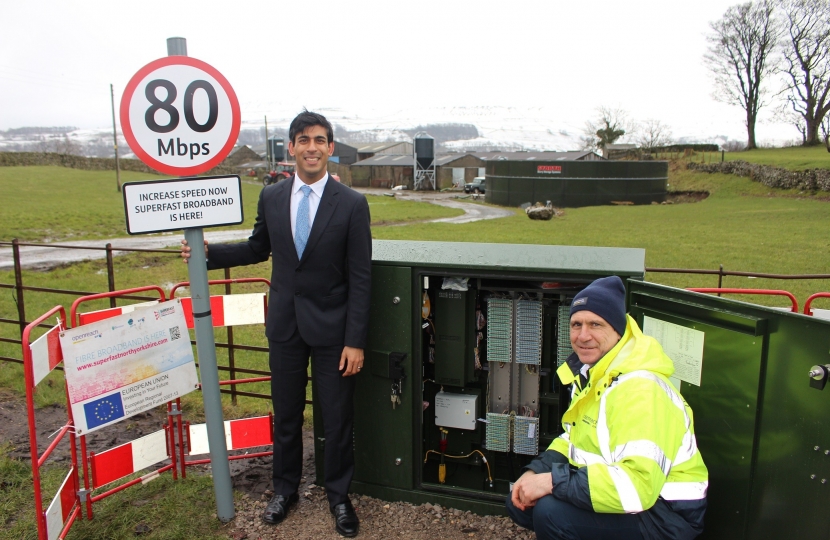
DECENT broadband for rural areas has always been a big priority for me. My very first question to the Prime Minister in 2015 was about superfast broadband.
Whether it has been speaking in the House or lobbying Ministers along with other rural MPs, campaigning about the importance of good digital communications to the countryside economy has been a real passion of mine.
Because apart from the general principle that the countryside should not be disadvantaged as the digital revolution unfolds, I know only too well the frustration of being beyond the reach of the existing broadband network, despite my home being within five minutes’ drive of Northallerton.
Kirby Sigston is certainly a small village but nobody would consider a community within three miles of our county town as deeply rural in the way an isolated settlement at the top of Swaledale would be.
But good progress is being made thanks to an established partnership between local and central government. And it is really encouraging to see North Yorkshire at the forefront of the expansion of the UK’s rural broadband network.
Thanks to North Yorkshire County Council’s Superfast North Yorkshire programme, at the end of last year more than 90 per cent of homes and businesses in the county had access to superfast speeds – that’s at least 30Mbps.
The contract for the next phase of the rollout – funded by £12m from the county council and £7m from central government – will cover a further 14,200 homes and it was signed this month. The vast majority of those will be connected directly to the network with fibre-optic cables providing access to speeds of up to 1Gbps – enough to stream 200 HD movies at the same time.
By the time this phase of the rollout is complete 95 per cent of homes and businesses will have access to superfast speeds or better.
Which is great but not so great if you are in the remaining five per cent. Accordingly, the Government has acted to protect the interests of taxpayers who typically live in the most isolated or out of the way spots.
Firstly, a Universal Service Obligation (USO) for broadband will be in place by 2020. That means anyone, regardless of where they live, will be able to request a 10Mbps service, subject to a reasonable cost threshold. This is based on the belief that it is simply not an option to leave household or businesses without adequate access to key public services, to work flexibly, or to shop or to connect with others online.
Secondly, a measure that is already in place and many constituents have already taken up, is a system of broadband vouchers called the Better Broadband Scheme. Anyone who currently has access to only a very basic broadband service of 2Mbps can apply for a subsidy of up to £350 towards the cost of an alternative delivery technology such as satellite, fixed 4G or fixed wireless.
Finally, there are options for groups of residents to come together to set up community-led broadband schemes using fibre, satellite or 4G. Again the costs of these can be at least part-funded by the Better Broadband Scheme.
You can find more information about all these options at www.basicbroadbandchecker.culture.gov.uk and www.superfastnorthyorkshire.com.
